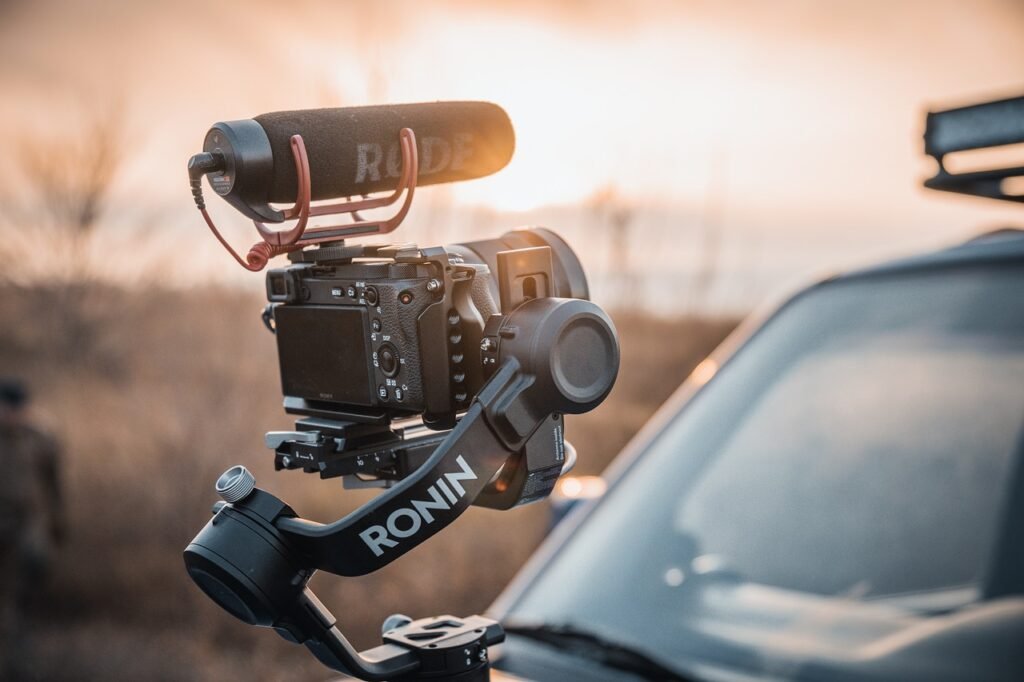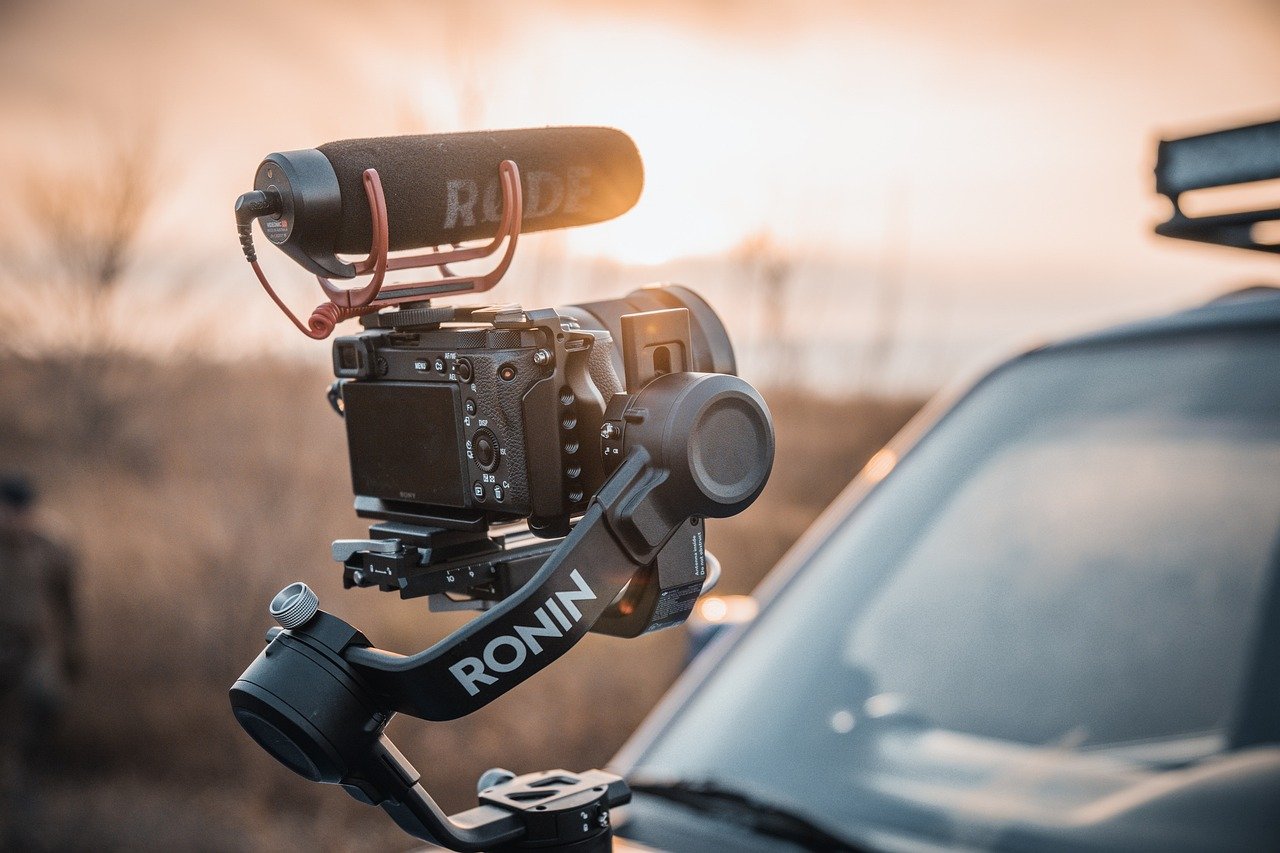What if you could share your passion with the world, capturing every moment in a way that resonates with your audience? Vlogging has become an incredibly popular medium, allowing you to express yourself and connect with others. But to achieve that, having the right camera is crucial. So, what’s the best camera for vlogging?

Understanding Your Vlogging Needs
Before settling on a camera, it’s essential to understand your particular vlogging needs. Different styles of vlogging require different features. Are you planning to shoot travel vlogs, beauty tutorials, or gaming content? Each niche has its own camera requirements.
Types of Vlogs
Your vlogging type will influence your choice.
-
Travel Vlogs: You’ll want a compact, lightweight camera that’s easy to carry around but still offers great quality.
-
Beauty Vlogs: Look for a camera that excels in close-up shots and offers superb color representation.
-
Gaming: A camera capable of capturing high-definition footage with excellent audio options is essential.
Budget Consideration
Before you make a decision, it’s wise to establish your budget. Not all great cameras will break the bank, but knowing how much you’re willing to spend helps narrow down your options. Are you starting out and need an entry-level model, or are you ready to invest in something more professional?
Key Features to Look For
When considering which camera is best for vlogging, there are several key features to keep in mind.
Video Quality
If you’re vlogging, the video quality should be on top of your list. Look for a camera that shoots in at least 1080p. More advanced options will offer 4K video. Understand that higher resolution captures more detail, which is crucial for maintaining visual integrity, especially if you’re planning to edit and publish your content online.
Stabilization
Nothing ruins a potentially great video like shaky footage. This is where stabilization comes in. Look for cameras with built-in stabilization systems, such as optical or electronic image stabilization, to ensure your videos are smooth even when you’re on the move.
Audio Quality
Often overlooked, audio quality is just as important as video quality. Viewers are likely to click away if they can’t hear you well. Consider a camera that either has a good built-in microphone or allows for external microphones.
Low Light Performance
You’ll be in various situations when vlogging, some of which may not have the best lighting. Look for cameras that perform well in low-light conditions without too much noise. This will ensure your content remains professional, regardless of the setting.
Autofocus
If you’re recording yourself, autofocus becomes critical. Cameras equipped with fast and reliable autofocus systems will keep you in focus even when you move around.
Portability
If travel vlogging is in your plans, portability matters. Choose a lightweight, compact camera that can easily fit in your bag. This will make it easier to take your camera anywhere.
Battery Life
Vlogging can take a toll on your camera’s battery. Ensure you choose a model with good battery life or one that allows for easy swapping of batteries when you’re on long shoots.
Top Cameras for Vlogging
Now that you know what features to look for let’s discuss some of the best cameras currently available that fit the vlogging genre.
Canon G7X Mark III
The Canon G7X Mark III has made a name for itself among vloggers.
Key Features
| Feature | Description |
|---|---|
| Video Quality | Shoots in 4K, providing excellent video quality. |
| Stabilization | Optical image stabilization to reduce shake. |
| Audio | Has a 3.5mm input for external microphones. |
| Low Light | Performs well in low light with a decent sensor. |
| Portability | Compact design makes it easy to carry around. |
With its compact size and remarkable features, it’s no wonder this camera is a favorite among many content creators.
Sony ZV-1
The Sony ZV-1 is specifically tailored for vloggers.
Key Features
| Feature | Description |
|---|---|
| Video Quality | Offers 4K recording with impressive detail. |
| Autofocus | Fast hybrid autofocus with face detect capabilities. |
| Audio | Comes with a windscreen for better audio capture outdoors. |
| Low Light | Great low-light performance, thanks to its large sensor. |
| Portability | Small, lightweight design. |
This camera offers all the must-have features while being user-friendly, making it perfect for those who are just starting their vlogging journey.
Panasonic Lumix GH5
If you’re serious about quality and pro-level vlogging, the Panasonic Lumix GH5 is a contender worth considering.
Key Features
| Feature | Description |
|---|---|
| Video Quality | Capable of shooting in 4K at 60fps for ultra-smooth video. |
| Stabilization | 5-axis dual image stabilization ensures stability in footage. |
| Audio | Supports external microphones and has a headphone jack. |
| Low Light | Excellent low-light capabilities due to a larger sensor. |
| Battery Life | Enhanced battery life for longer shooting sessions. |
While it’s a bit larger, its quality makes it possible to create professional-level content.
GoPro HERO11 Black
For those looking into action and lifestyle vlogging, the GoPro HERO11 Black is a versatile choice.
Key Features
| Feature | Description |
|---|---|
| Video Quality | Captures stunning 5.3K video at high frame rates. |
| Stabilization | Advanced HyperSmooth stabilization for smooth footage. |
| Audio | Good audio quality with an option for external mics. |
| Portability | Compact and rugged design makes it perfect for adventures. |
| Durability | Waterproof without a case, ideal for various environments. |
Great for action-packed adventures or capturing dynamic moments while on the go.
Choosing the Right Accessories
Camera selection is only part of the vlogging equation. The right accessories can elevate your content to the next level. Here are some essential accessories you’ll need.
Tripod
Stability is key when filming. A sturdy tripod will allow you to shoot without any shaking when you’re stationary. Look for a lightweight and compact option that’s easy to carry around.
Microphone
As mentioned earlier, good sound is essential. An external microphone greatly enhances audio quality and will reduce background noise, making your videos more enjoyable to watch.
Lighting
If you’re vlogging indoors or in low-light situations, proper lighting can improve your video quality immensely. Invest in a quality ring light or softbox that can be easily set up and used when necessary.
Extra Batteries and Memory Cards
Always carry extra batteries and memory cards. Vlogging can drain your camera’s battery, and the last thing you want is to run out of storage space during a shoot. Choose high-speed memory cards for better performance.

Editing Your Vlogs
Once you’ve captured your footage, the next step is editing. Editing helps you craft a compelling story, keeping your audience engaged. There are various software options available, from beginner-friendly to professional-grade.
Beginner-Friendly Options
- iMovie: Great for Mac users looking for simple editing tools.
- Filmora: User-friendly with plenty of features for beginners.
Intermediate/Advanced Editing Software
- Adobe Premiere Pro: A professional-grade software that allows extensive editing capabilities.
- Final Cut Pro: Another powerful tool for those using Mac with a range of options for professional editing.
Choose software that fits your skill level and what you want to achieve in your vlogs.
Final Thoughts
Choosing the right camera for vlogging boils down to considering your specific needs—what type of vlogs you plan to create, your budget, and the features that matter most to you.
The Canon G7X Mark III and the Sony ZV-1 are fantastic options for those looking for compact, versatile cameras. The Panasonic Lumix GH5 stands out for those wanting professional quality. Meanwhile, the GoPro HERO11 excels in adventure and action vlogging.
Invest in good accessories, find the right editing software, and you’ll be well on your way to making engaging videos for your audience. So, what camera do you think will best fit your vlogging style?

